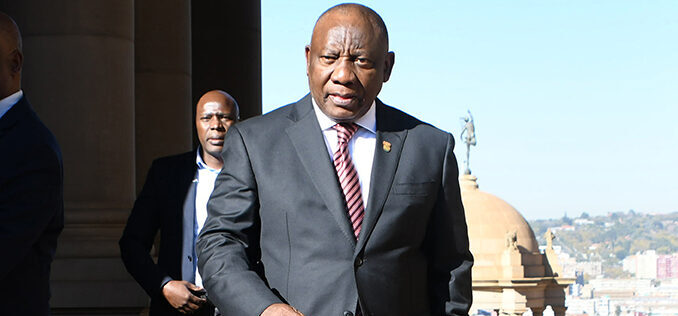The way South Africa has responded to the recent 30% tariffs imposed by the US speaks to the country’s adaptability and progressive stance on global trade.
Rather than retreating, SA has shown that its diplomacy, guided by strategic foresight, can transform adversity into opportunity.
The US tariffs, which came into effect on August 7, affected mostly South Africa’s crucial sectors – automotive and agriculture. In response, the government has steadfastly pursued negotiations to ensure that trade relations with the US remain open, balanced, and mutually beneficial.
Negotiations are continuing to find a fair and sustainable resolution that benefits both nations’ economic interests.
The government is also exploring new and alternative markets in Asia, the Middle East and Africa to secure more favourable trade deals for the country’s products.
These efforts are part of a broader drive to diversify trade partnerships.
In September 2024, President Cyril Ramaphosa led a delegation of ministers and officials to the People’s Republic of China and participated in the Forum on China-Africa Cooperation summit.
China is South Africa’s largest trading partner, while South Africa is China’s top trading partner in Africa.
The engagements resulted in both countries agreeing to expand their economic and trade ties by improving the trade structure, increasing market access, and boosting South African value-added exports to China.
As a result of this engagement, South Africa recently signed a landmark stone fruit trade protocol with China.
The agreement opens the Chinese market to five local stone fruit varieties: apricots, peaches, nectarines, plums and prunes.
This breakthrough comes at a critical moment for agricultural diversification, providing South African farmers and exporters access to one of the world’s largest consumer markets and enhancing the sector’s long-term sustainability.
Agriculture remains one of the pillars of the local economy, contributing significantly to the country’s gross domestic product.
According to South Africa’s Agricultural Conditions Assessment Committee, fruit production has rebounded strongly this year, with citrus, deciduous fruits, table grapes and other categories recording improved yields and higher export volumes compared to last season.
Recently, the Minister of Trade, Industry and Competition, Parks Tau, led a high-level delegation to India with the goal of deepening trade relations and unlocking new areas of collaboration.
The visit focused on advancing cooperation in the mining and minerals sector, while also highlighting opportunities for investment and growth in manufacturing, particularly in the automotive and pharmaceutical industries.
The president undertook a working visit to Japan to position South Africa as a strategic player in global value chains.
Discussions centred on enhancing trade and investment ties, with a strong emphasis on collaboration in emerging industries such as battery minerals, automotive components, renewable energy equipment and hydrogen technologies.
Japanese investment in automotive production, most notably Toyota’s expansion in KwaZulu-Natal, demonstrates that industrial cooperation can translate into tangible economic benefits.
In addition, the Japan-South Africa Hydrogen Dialogue, launched to promote low-carbon energy development, represents the kind of forward-looking partnership that can create jobs and spur innovation in the local economy.
These strategic visits highlight South Africa’s proactive approach to trade diplomacy, one that aims to build resilient, mutually beneficial partnerships while tapping into new markets that can drive inclusive and sustainable growth.
SA also hosted the South Africa-EU Summit, a significant platform reaffirming the nation’s commitment to strengthening political and economic relations.
The outcomes of this engagement aligned closely with South Africa’s developmental priorities, particularly investments, clean energy transition and the growth of strategic industries.
Collaborations of this nature are not just diplomatic gestures; they translate into tangible efforts to attract investment and create much-needed jobs.
In addition to strengthening global partnerships, South Africa continues to engage potential trade partners across the African continent, including Algeria and Egypt. The African Continental Free Trade Area, the world’s largest free trade area, represents Africa’s bold
vision for economic integration and shared prosperity.
Through strategic partnerships, diplomacy, and a clear focus on inclusive growth, the country is charting a path that not only safeguards its economic future but also positions it as a confident and capable player in the global economy.
• Baloyi is deputy government spokesperson



